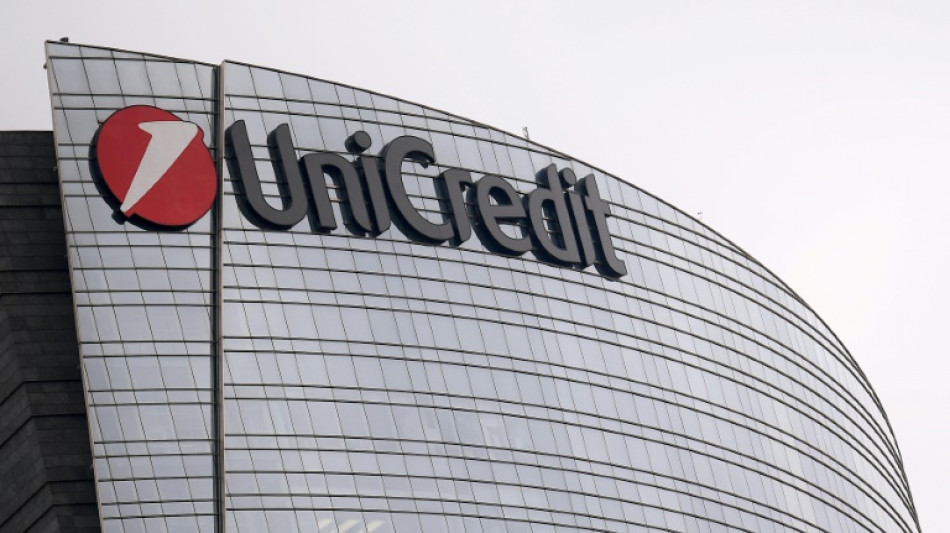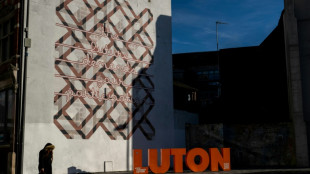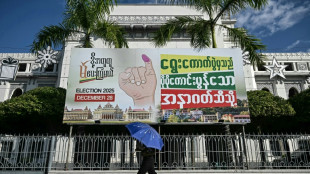

UniCredit boosts outlook after walking away from Banco BPM
Italy's UniCredit posted a sharp rise in quarterly profit on Wednesday despite lower revenues, a day after it withdrew its offer for smaller rival Banco BPM due to government interference.
Late Tuesday, UniCredit said it was dropping its bid for Italy's third-largest bank Banco BPM, blaming restrictions on the deal imposed by the Italian government while calling it a "missed opportunity" for shareholders.
Resolution of the impasse did not have "a clear deadline on it," Chief Executive Andrea Orcel told analysts during a conference call following results.
"That for us had become a drag. That is the main reason we withdrew," he said.
The country's second-largest bank posted second-quarter net profit of 3.3 billion euros ($3.9 billion) versus 2.7 billion euros a year earlier, a nearly 25 percent rise.
Excluding one-off items, UniCredit said its net profit stood at 2.9 billion euros, up eight percent, above analysts' average estimates of 2.5 billion euros.
Revenues fell, however, by 3.3 percent to 6.1 billion from 6.3 billion euros in the quarter, hit by hedging costs associated with its 9.9 percent stake in Commerzbank, where UniCredit is now the largest shareholder.
By mid-morning UniCredit shares rose as high as 60.77 euros, up 4.6 percent, on the Milan stock exchange, while those of Banco BPM fell as much as 4.6 percent to 9.82 euros.
- Tug-of-war -
Looking ahead, UniCredit said it was boosting its net income outlook for 2025 to 10.5 billion euros, above its earlier expectation of 9.3 billion euros.
It also expects 2025 net revenue above 23.5 billion euros.
The results demonstrated how "a transitional year" turned into the bank's "best year ever", UniCredit said in a statement.
UniCredit said one-off items impacted its second quarter, including the equity consolidation of its Commerzbank stake and acquisition of life insurance joint ventures.
For 2026 and beyond, revenue and profit would be boosted through "the internalisation of life insurance and the equity consolidation of Alpha Bank and Commerzbank," it said.
UniCredit also said it would soon begin a 3.6-billion-euro share buyback programme.
The surprise announcement of UniCredit's withdrawal brought to an end a protracted tug-of-war since November, pitting UniCredit against Banco BPM and the Italian government, which opposed the potential deal originally valued at 10.1 billion euros ($11.9 billion).
While Banco BPM considered the move hostile and the offer insufficient, Italy's government under Prime Minister Giorgia Meloni similarly opposed it, as it would have thwarted its plans to create a third large banking group in Italy, comprising Banco BPM and Monte dei Paschi di Siena (MPS).
The point of contention for UniCredit was the government's so-called "golden power" provision, which it exercised in April and which cited national security concerns due to UniCredit's operations in Russia.
The provision allows the government to set certain restrictive conditions on takeovers in strategic sectors, such as banking.
Those included an obligation for UniCredit to maintain the level of loans granted in Italy for a certain period of time, and to cease all activity in Russia.
- 'No clarity' -
UniCredit said Wednesday it was further reducing its exposure in Russia and was already well ahead of its targets and those of the European Central Bank.
Earlier in July, the European Commission warned Italy that the provision was in potential violation of EU law.
On Tuesday, Italy's financial market regulator, Consob, suspended the bid for 30 days, citing a "situation of uncertainty" around the offer, potentially giving the parties more time to revolve the problems.
But even with an extended deadline, the uncertainty remained, Orcel said.
"Even with the Consob extension the situation is such that we will not get clarification of golden power within that timeline," he told analysts.
Speaking more broadly, he said EU countries needed more clarity on what was allowable with such transactions.
"We hope the debate between the EU and all the national governments leads to a resolution on banking union because Europe needs it," Orcel said.
"This is all new."
M.Marini--GdR


